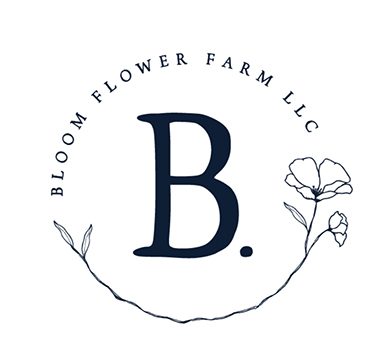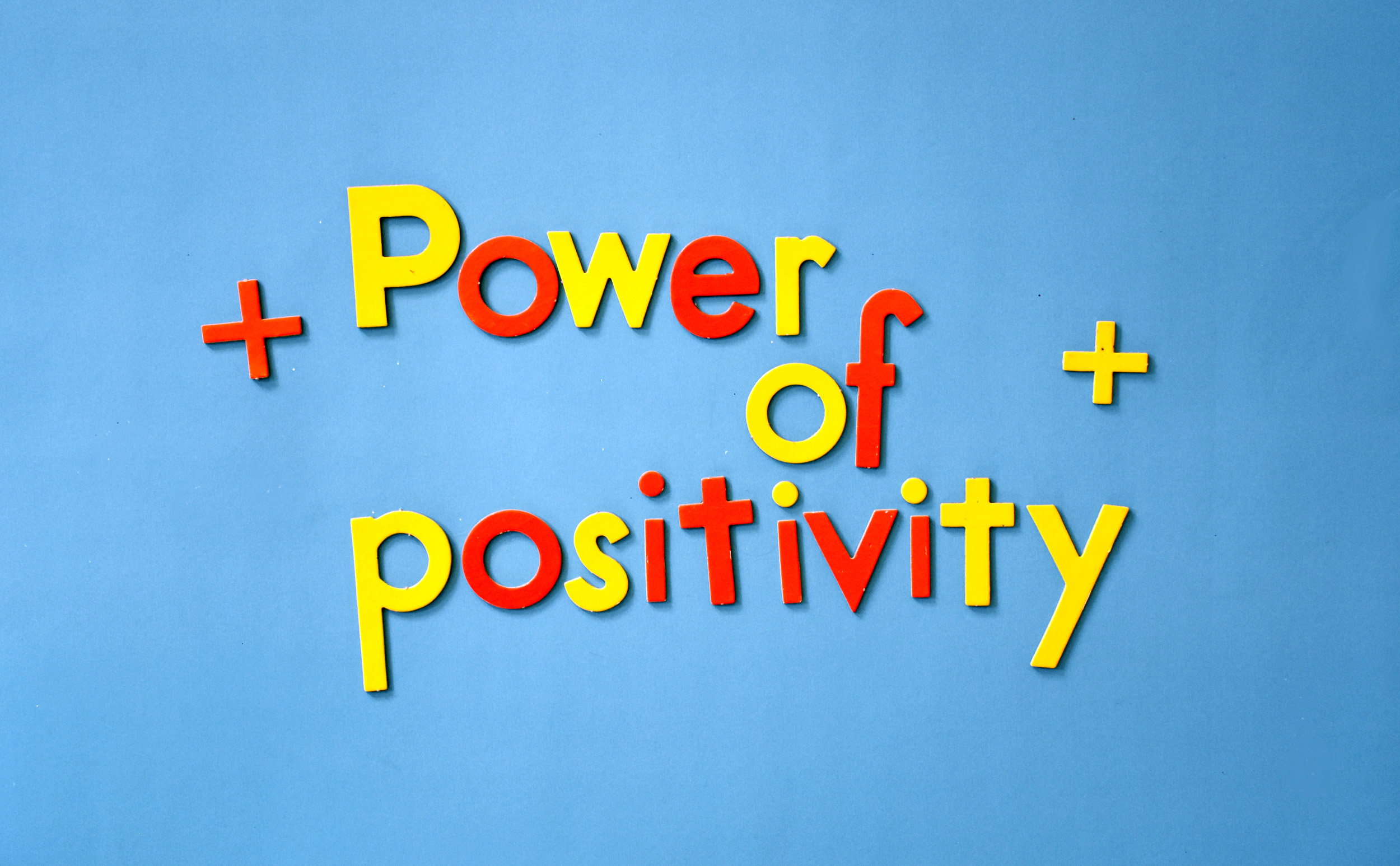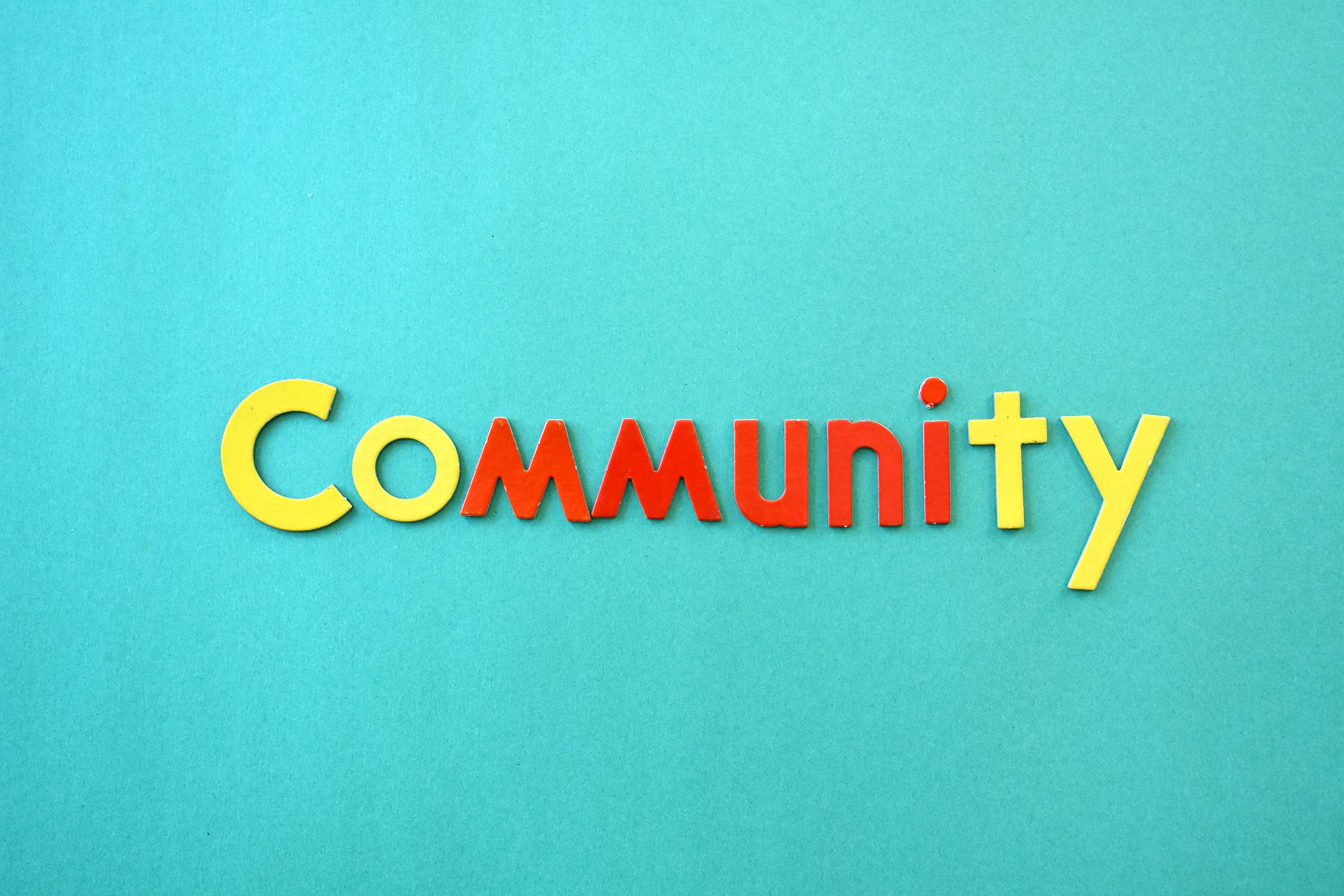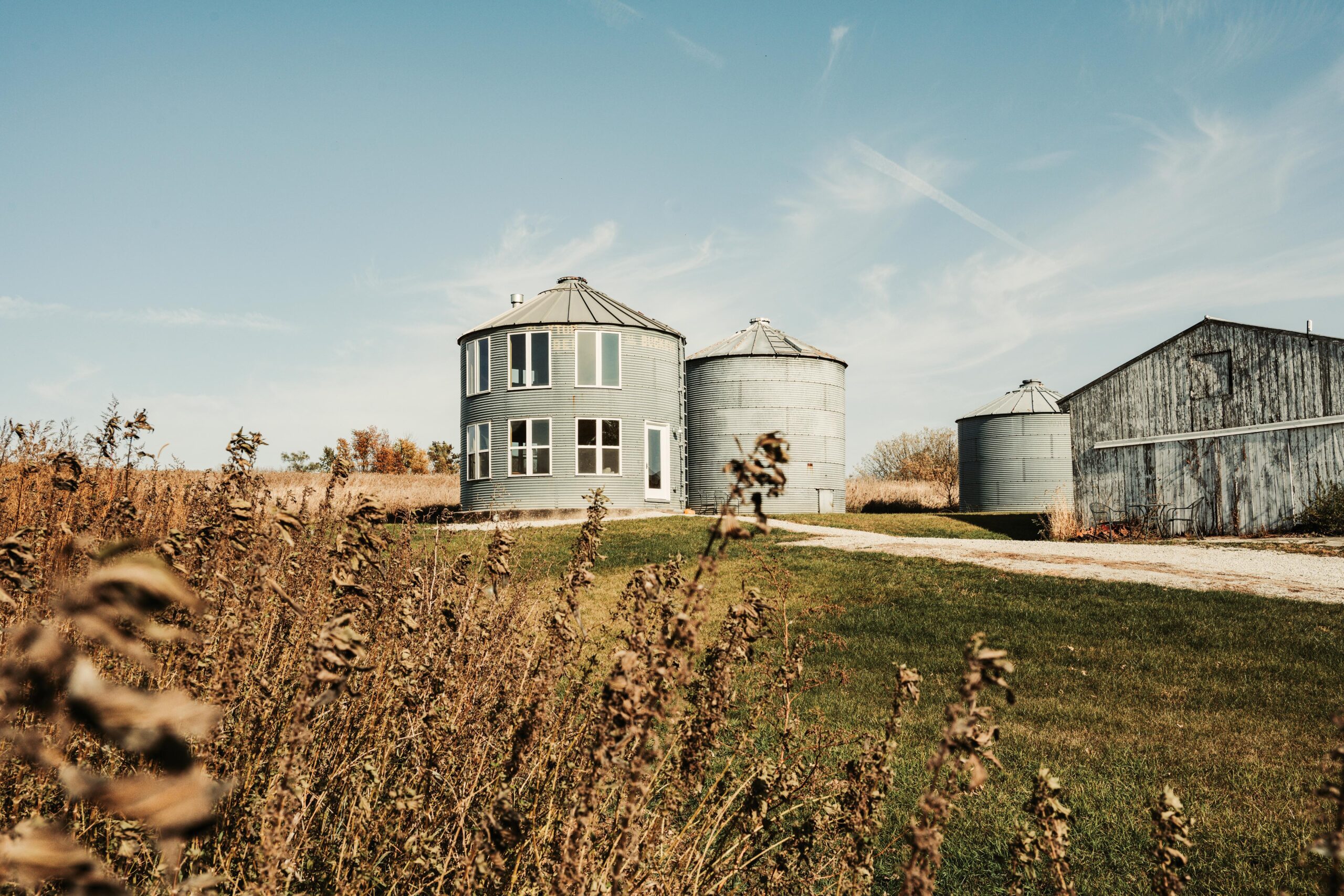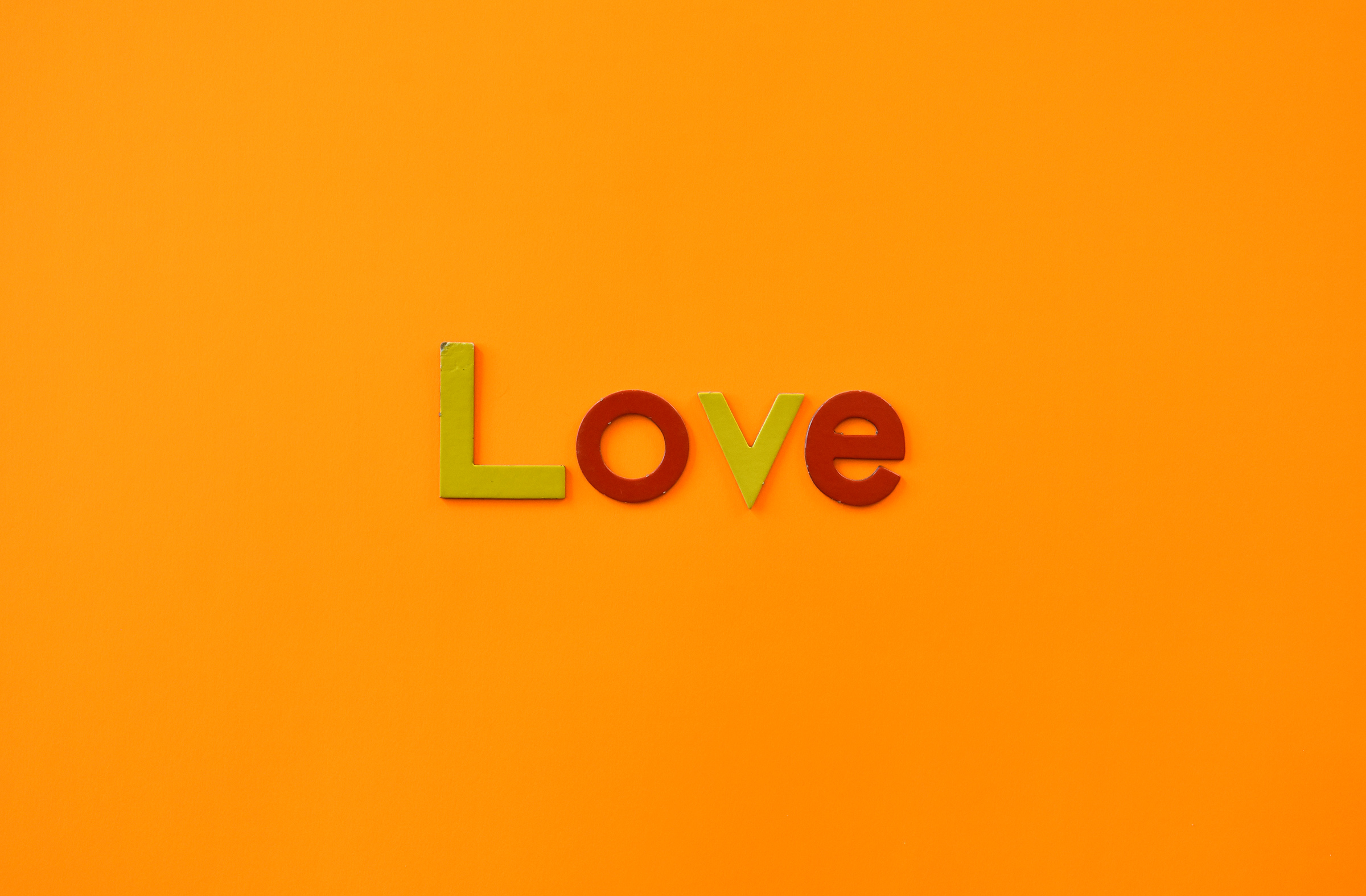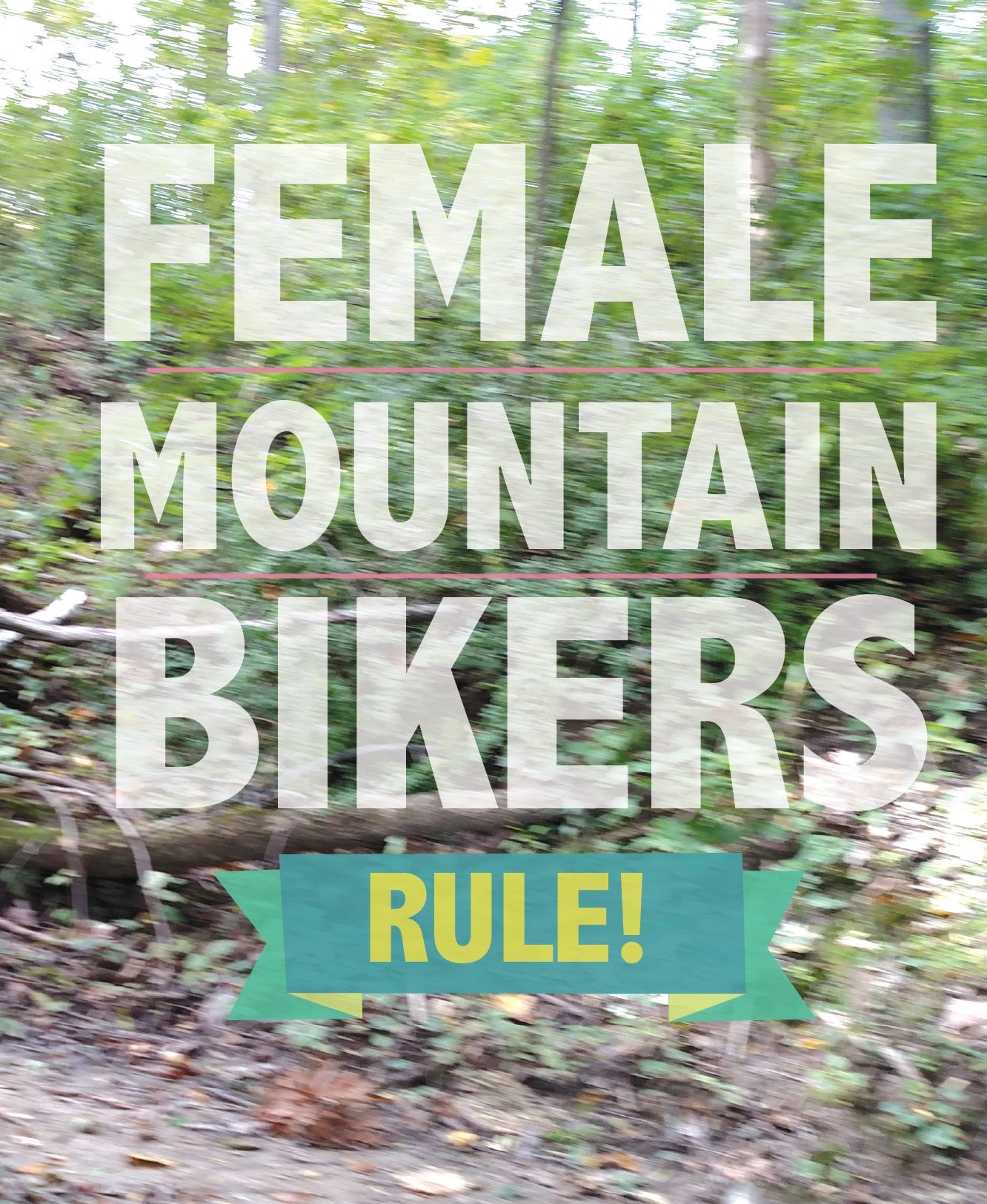Repurposeful: Recycling in Winneshiek County

By Aryn Henning Nichols
He’s been called the Willy Wonka of recycling. Terry Buenzow walks around the Winneshiek County Recycling Center pointing at different contraptions that squeeze, shrink, shred, and generally squish all sorts of recyclable materials. With a friendly, teaching sort of voice, he talks over the clang of cans and the whir of forklifts, explaining the path of the cardboard box or number one plastic – “You’re wearing number one right there. Polyester!” He names off numbers and details on each item like he’s listing off grandchildren; this guy really loves recycling.
For nearly a decade, Buenzow has been watching the paper/plastic/metal/textile/glass market to analyze what’s going to happen in the recycling world and how to most effectively and efficiently put items we no longer need or want back into use or back on our shelves. Since the Winneshiek County Recycling Center (WCRC) became a public facility on April 1, 2009, interest in the center has increased dramatically. People are stopping out to drop off items, learn a little (or a lot) or to just say hello.
“Our direct traffic out here since April 1 has tripled,” Buenzow says. “A lot of people in this county feel some ownership now. Which is good. That’s the kind of attitude you want in this business.”
Perhaps it’s this attitude that makes the area’s recycling so consistently high quality.
“People in this county are really great about recycling. Things are clean and there is very little public dumping,” Buenzow says. “As far as the recycling jobs in Iowa, I got the best one. This is it. I don’t complain.”
Other counties have a harder time, especially with appliances, and when it’s $15 a pop for disposal, this can really add up. “We are fortunate we don’t have to deal with that very much,” Buenzow says.
That being said, Buenzow has seen some interesting items come into the center over the course of his time there.
“You name it, I’ve seen it in here,” he says.
Barbie dolls?
“Tons of ‘em.” (FYI: you CAN’T recycle Barbie dolls – take them to a second hand store for reuse.)
Toilets?
“I’ve seen a toilet come in here,” Buenzow says. “But they’re hard to fit in the bins anymore ‘cause we made the openings smaller.”
The things they do accept have a varied life. Each state has its own recycling policies, Buezow says, and most centers are county-run. The different materials go to manufacturers across the US and Canada, and it is an ever changing market. The sale of recyclable plastic, for instance, is entirely tied to the natural gas market. The type of paper you’ve got in a bale can more than double its worth. Textiles can go to another country for reuse or cut up to be repurposed. It’s an amazing world of working with what you’ve got – something people seem to be relearning these days.
Luckily, the path can be pretty short for recyclables in Northeast Iowa. There are many manufacturers just a short truck route away. International Paper in Cedar Rapids. the largest cardboard recycling mill in the country, second in the world, is just 90 miles away.
“I’ll have a dedicated semi-load of cardboard in six days, same with paper,” Buenzow says. “Most likely it will go to Cedar Rapids, and it can be there in just a couple of hours.”
Check out Inspire(d)’s illustration of sample paths many of the things you put in those bright blue bins might take. Buenzow says that although people around here are educated about recycling, the center could accept even more materials. He hopes his latest education efforts – like entering the social networking world by putting WCRC on Facebook – will help people learn even more and in turn recycle even more. Check them out to learn more about recycling or how your tax dollars are being spent. Or stop out and say hi. Better yet, volunteer to help and really take ownership of this publicly funded organization.
“It’s great if you want some therapy – just come out and smash or shred stuff,” Buenzow says, (after signing a liability form, of course, he adds). “Junk is fun!”
Aryn Henning Nichols was excited to win the golden ticket and visit Terry Buenzow and the Recycling Factory.
Winneshiek County Recycling Center, 2510 172nd Avenue, Decorah, IA, 52101
563-382-6514
Find Winneshiek County Recycling on Facebook – there’s lots more information and even guides on how to prepare your recycled materials!
Below is some information Inspire(d) got on recycling in Winneshiek County while visiting Terry Buenzow.
Cardboard: Most of the WCRC cardboard heads to Cedar Rapids International Paper, the largest cardboard recycling mill in the country. “The cardboard industry thrives on recycled content. The International Paper mill is running totally recycled,” Buenzow says. Do accept: Basic brown corrugated boxes, cereal, cracker and cake boxes, 12-pack cartons and pizza boxes, shoe boxes and mailing tubes. Do not accept: Waxy containers like butter boxes and orange juice cartons. $65/ton
Paper: Paper comes in different grades – office paper, newsprint, mixed waste (the “I can do no wrong” paper) – the price range for paper starts at $25/ton and runs up to $250/ton (that’s for sorted white, ledger). It might go to some tissue mills in Wisconsin or a newsprint mill in Ontario. “Our first choice is always to make a similar product.”
# 8 News – needs to be 80% newsprint – this is worth around $35 to $40/ton
Office paper – traditionally strong $165/ton at least – pure white $250/ton
And yes, you CAN recycle magazines! If you’ve passed Inspire(d) on and on and on and don’t want to save it for your “collection,” recycle it!
Things you might not know about paper recycling: don’t worry about staples or little plastic windows. Paper plates? Not recyclable, sorry.
Plastic – #1 & 2 hold the best market value. The price of plastic is tied entirely to the price of natural gas. “Plastics are the most complicated and confusing of all the materials we take. We have to sort the plastics by their number at the recycling center because the different types are not compatible with each other when they are re-melted at a plastic processor.”
#1 – pop bottles, water bottles, etc.– might go to a place like Mowawk Carpets in Georgia Makes good carpet, fabrics, fleece blankets, etc. It’s a very strong plastic. “The power of number 1 plastic is unbelievable.” Over the past six months #1 has been worth from $120 – $175/ton.
#2 – milk jugs – can get 15,000 pounds in one bale. It squishes better. It can be made into pails, toys, car parts, or construction materials. The rest of the numbers (3-7) go into waste reduction bales along with enough 1 and 2 to make them at attractive on the market. The bales are sold to a variety of plastic processors.
Aluminum/Tin/Metal – “Metal items are some of the easiest products to recycle. In fact, almost all of them have some recycled content. The basic tin can may end up being part of a new car or made into a can again. Aluminum beverage cans usually become new beverage cans or foil. Aluminum frying pans and cookie sheets can become about any other aluminum product there is.” Some goes to processor in Eau Clair, WI, to make steel siding – you can buy that siding at Menard’s – and a lot of other metals go to Le Roy Iron.
Do accept: Food cans (the basic “tin” can), beer cans and pop cans, aluminum foil (they have an aluminum foil cubing machine), pie plates and roaster pans, metal cookware, such as frying pans, cookie sheets, sauce pans, etc., decorative canisters and tins, electric motors, electrical cords and wall chargers. Metal prices can range from $30/ton to quite a bit more for
Textiles and shoes: Take your used clothing and shoes to the Depot Outlet in Decorah (or another second hand store in your town). WCRC works closely with the Depot. What they can’t sell goes to WCRC for baling or sorting and selling. Textile bales may go some place like Toronto for resale “What’s not fashionable here might be there.”
Glass: “It’s really hard to work with,” Buenzow says. “That’s why there isn’t a market for it.” It’s not a favorite topic at recycling centers. That being said, you may take glass directly to WCRC. It will be crushed and used for landfill drainage at the Winneshiek County Sanitary Landfill. Best option? Be conscious of glass packaging you do buy. Choose plastic if possible.




